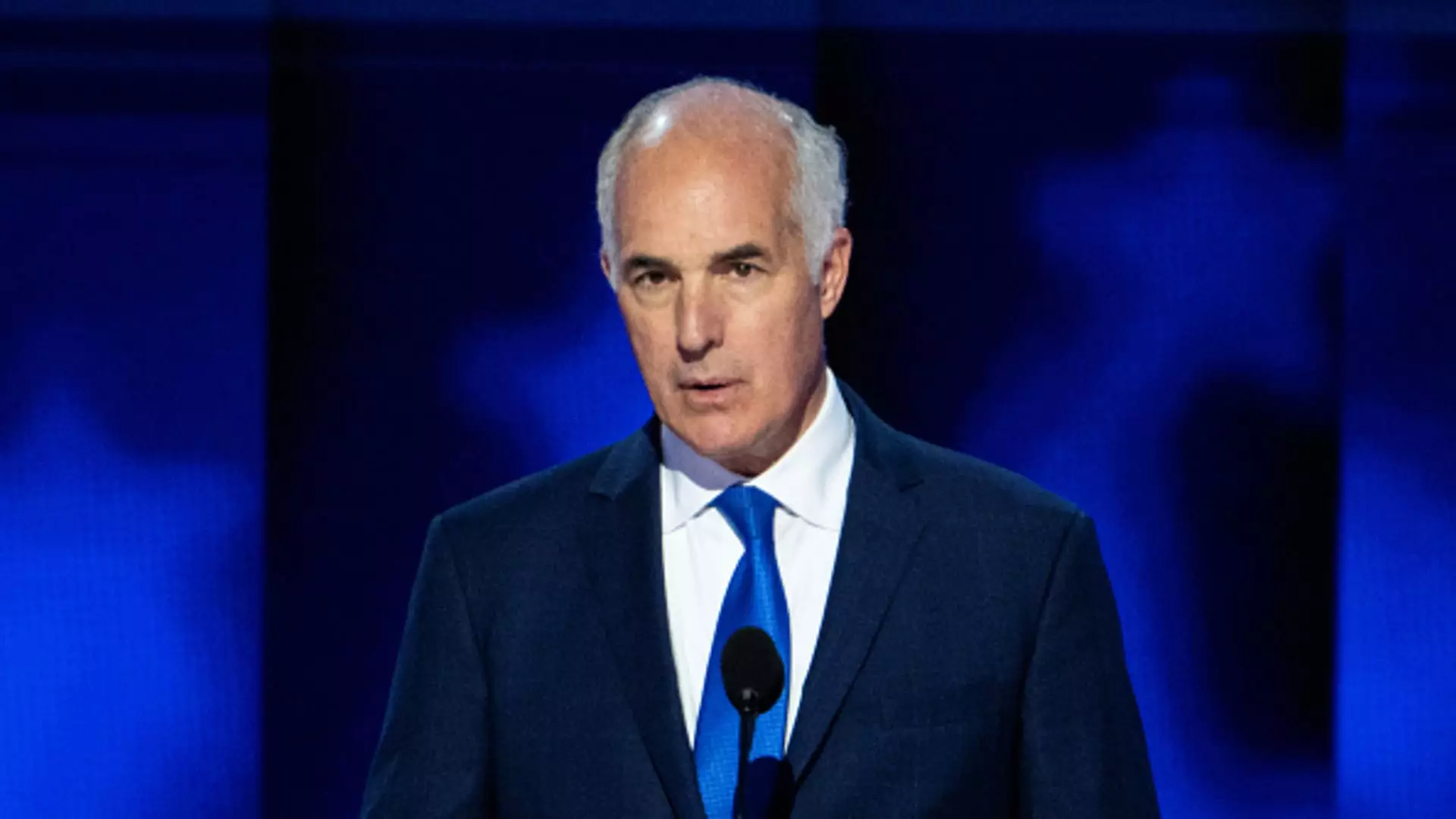In a significant political development, Senator Bob Casey of Pennsylvania officially conceded in his bid for re-election to Dave McCormick, his Republican challenger. The race, which concluded with a razor-thin victory for McCormick, marked a substantial shift in Pennsylvania’s political landscape and echoed broader national trends observed in the recent electoral cycle. The projection of McCormick’s win by NBC News came swiftly after Casey acknowledged the outcome, further solidifying the reality of a changing political tide within the state.
The election results revealed a discrepancy of slightly over 16,000 votes, with McCormick earning 48.8% compared to Casey’s 48.6%, leading to an automatic recount due to the slim margins involved. Such close contests stir a maelstrom of emotions—from hopes for an upset victory to the stark reality of political change. Casey’s concession was also a moment of reflection, emphasizing the importance of civic engagement in the electoral process. He acknowledged that no matter how votes were counted, every Pennsylvanian’s voice was vital—a recognition that resonates with many individuals across the political spectrum.
This outcome not only enriches the Republican majority in the Senate, elevating their count to 53, but also establishes crucial support for incoming President Trump. With congressional majority control reinstated, discussions around confirming Trump’s Cabinet appointments could proceed with a greater swiftness, indicating potential shifts in policy and governance that may follow in the months to come.
In response to Casey’s concession, McCormick expressed his gratitude for his opponent’s years of public service, calling upon the importance of unity in governance amid a divided electorate. His commitment to serving all Pennsylvania citizens was palpable, assuring the electorate of his dedication to addressing their needs in the Senate. Building bridges across political divides may be an essential aspect of his tenure, especially given the narrow margin by which he secured victory.
Such sentiments echo a longing for bipartisanship amid political polarization, suggesting that McCormick’s leadership could strive not only for Republican values but also for a cooperative spirit that serves a broader constituency. The expectation now rests on McCormick to demonstrate effective governance that meets the diverse demands of the state’s populace.
The ramifications of this election extend beyond the immediate victor. Senator Casey’s defeat raises questions about the future for Democrats in Pennsylvania, calling for introspection regarding strategies moving forward. As national politics continually evolve, states like Pennsylvania will be crucial bellwethers for understanding the sentiments of the electorate.
McCormick’s victory is emblematic of a larger national trend that may signal a transformative era in American politics, particularly for swing states. The yields of this election will undoubtedly shape policy discussions, governance, and the political narrative in Pennsylvania as well as across the country in the months and years to follow. As both parties analyze the implications of this race, the focus will be on galvanizing voter support, fostering unity, and addressing the challenges that lie ahead.


Leave a Reply